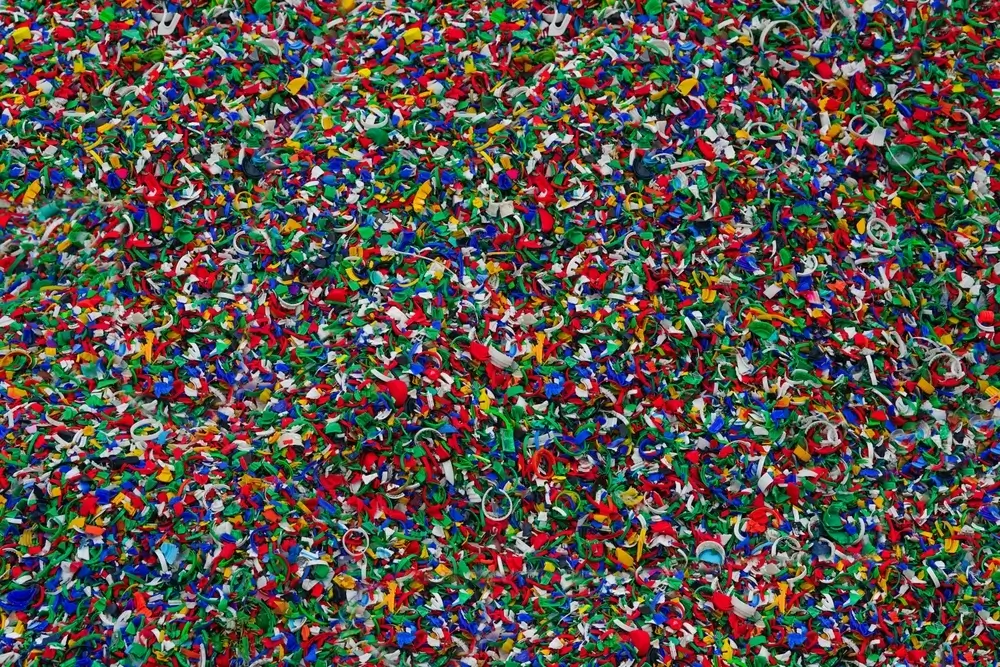The Importance of Quality in Recycled HDPE

In today’s environmentally conscious marketplace, businesses are increasingly turning to recycled HDPE materials to reduce their carbon footprint and promote sustainability. Among these materials, High-Density Polyethylene (HDPE) stands out due to its versatility and wide range of applications. However, the quality of recycled HDPE can vary significantly, impacting both the efficiency and the reputation of your supply chain. This blog post explores why quality matters when selecting recycled HDPE and how to ensure you are sourcing reliable materials.
Understanding Recycled HDPE
Recycled HDPE is derived from post-consumer and post-industrial plastic waste. It is a popular choice due to its durability, resistance to impact and chemicals, and its ability to be molded into various shapes. These properties make it suitable for a variety of industries, including packaging, construction, and automotive.
The Risks of Poor-Quality Recycled HDPE
Using low-quality recycled HDPE can lead to several issues:
- Product Failure: Inferior recycled HDPE may have inconsistencies in density and composition, leading to brittle or weak products prone to failure.
- Manufacturing Defects: Poor-quality material can cause problems during the manufacturing process, such as blockage in machinery, uneven product finishes, and increased waste.
- Compliance Issues: Recycled HDPE must meet specific regulatory standards. Subpar material can result in non-compliance with industry regulations, leading to fines and legal repercussions.
- Brand Reputation: Consumers are increasingly aware of the quality and sustainability of products. Using poor-quality recycled HDPE can damage your brand’s reputation and lead to loss of customer trust.
Criteria for Selecting Reliable Recycled HDPE
To ensure you are sourcing high-quality recycled HDPE, consider the following criteria:
- Source Transparency: Work with suppliers who provide detailed information about the origin of their recycled HDPE, including the types of waste used and the recycling process.
- Certifications: Look for certifications such as ISO 14001 and ISO 9001, which indicate that the supplier adheres to high environmental and quality management standards.
- Testing and Quality Control: Ensure the supplier conducts rigorous testing and quality control measures to guarantee the consistency and reliability of their recycled HDPE.
- Performance Data: Request performance data and test results to verify the material’s properties, such as tensile strength, impact resistance, and chemical resistance.
- Customer Reviews and References: Seek feedback from other businesses that have used the supplier’s recycled HDPE to gauge their reliability and quality.
Benefits of Using High-Quality Recycled HDPE
Investing in high-quality recycled HDPE offers several benefits:
- Enhanced Product Performance: Reliable recycled HDPE ensures that your products meet high performance standards, leading to greater customer satisfaction and reduced returns.
- Cost Efficiency: While high-quality material may have a higher upfront cost, it can reduce long-term expenses by minimizing manufacturing defects, waste, and product failures.
- Regulatory Compliance: Ensuring that your recycled HDPE meets industry standards helps you avoid legal issues and fines.
- Sustainability: High-quality recycled HDPE often has a lower environmental impact due to the efficient recycling processes used, contributing to your sustainability goals.
- Brand Integrity: Using top-notch materials enhances your brand’s reputation for quality and sustainability, attracting eco-conscious consumers and partners.
Steps to Ensure Quality in Your Supply Chain
Implementing the following steps can help you maintain the quality of recycled HDPE in your supply chain:
- Supplier Audits: Regularly audit your suppliers to ensure they comply with your quality standards and environmental policies.
- Material Testing: Conduct independent testing of the recycled HDPE before it enters your manufacturing process to verify its properties and quality.
- Continuous Improvement: Collaborate with your suppliers to continuously improve the recycling process and material quality.
- Training and Education: Educate your procurement and quality assurance teams about the importance of material quality and the specific criteria for selecting recycled HDPE.
- Documentation and Traceability: Maintain detailed records of the recycled HDPE’s origins, certifications, and test results to ensure traceability and accountability.
Conclusion
Choosing reliable recycled HDPE is crucial for maintaining the integrity and sustainability of your supply chain. By prioritizing quality, you can enhance product performance, ensure regulatory compliance, and uphold your brand’s reputation for excellence. Implementing stringent selection criteria and continuous improvement processes will help you source the best recycled HDPE, ultimately contributing to a more sustainable and successful business.


